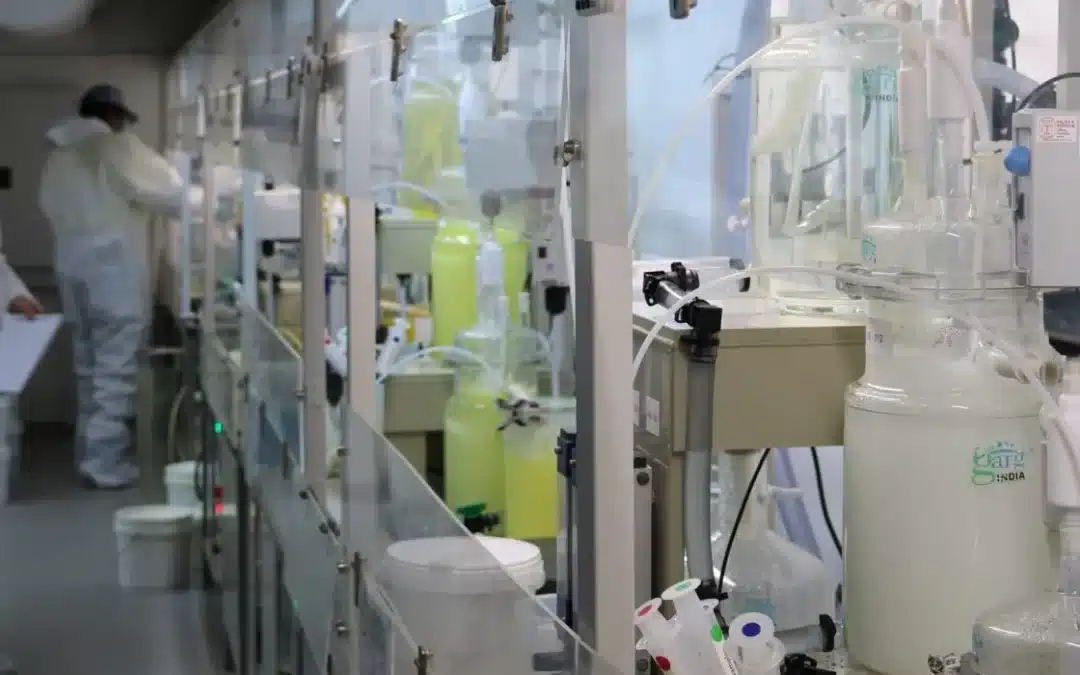After completing a $2 million placement earlier this month, Iondrive is working to accelerate a Pre-Feasibility Study (PFS) for its battery recycling technology, with a second phase of large-scale trials currently underway in Perth.
Iondrive’s patented technology is built around the use of deep eutectic solvents (DES) — a process developed from research at the University of Adelaide’s Materials Research Engineering Centre.
A DES is a mixture of two solvents that exhibit enhanced properties compared to their individual constituents. A DES is normally prepared by mixing two solvents with one being a hydrogen bond acceptor with the other hydrogen bond donor.
The first phase of the bench trials is now complete, with the results indicating that the DES metal recoveries can be effectively scaled with larger volumes. More than 95% of critical minerals, such as lithium, manganese, cobalt and nickel, were recovered from lithium-ion batteries.
Solvent losses of less than 2% were also recorded, which is critical for the economics of the process.
Independent confirmation of those results is now being conducted by Independent Metallurgical Operations in Perth, with results expected in July. The data will inform the design and costing of a commercial-scale plant to evaluate the economics of the process at scale.
Once complete, only three PFS activities will remain, for which Iondrive has shortlisted a number of organisations spanning Europe, the US, and Australia.
Those activities include high-level process engineering design of a 10,000-tonnes-per-year black mass plant, the economic benchmarking of DES against conventional metallurgical processes, and an engineering review to assess alternative processing configurations that might cut capital and operational expenses.
CEO Ebbe Dommisse says Iondrive will soon announce three engineering and benchmarking partners from Australia, Germany, and the US, to assist with the engineering design and costing of the DES process.
“The aim of this work is to understand and improve the technology’s economic competitiveness through benchmarking against industry standards,” he says.
“The successful large-scale bench trials at the University of Adelaide have provided excellent results that will feed directly into these upcoming engineering studies. Additionally, the tailwinds of supportive government policies in Europe, US, and Australia offer us an outstanding opportunity to push forward with our sustainable battery recycling technology.
“Both legislative and regulatory changes and government funding are enabling the acceleration of the commercialisation of ION’s technology.”
The PFS, which aims to de-risk the path to commercialisation, is on track to be completed by October 2024.
In parallel, the company is continuing discussions with potential collaboration partners, particularly in Europe, where European Green Deal and new batteries regulations are generating a sense of urgency for sustainable battery recycling.
Iondrive says the European Green Deal creates strong market dynamics for the adoption of new environmentally sustainable recycling technology. The regulation aims to improve environmental performance of batteries throughout its lifecycle.
Iondrive is an emerging battery recycling technology company. The company aims to develop and commercialise solutions for lithium battery recycling.



